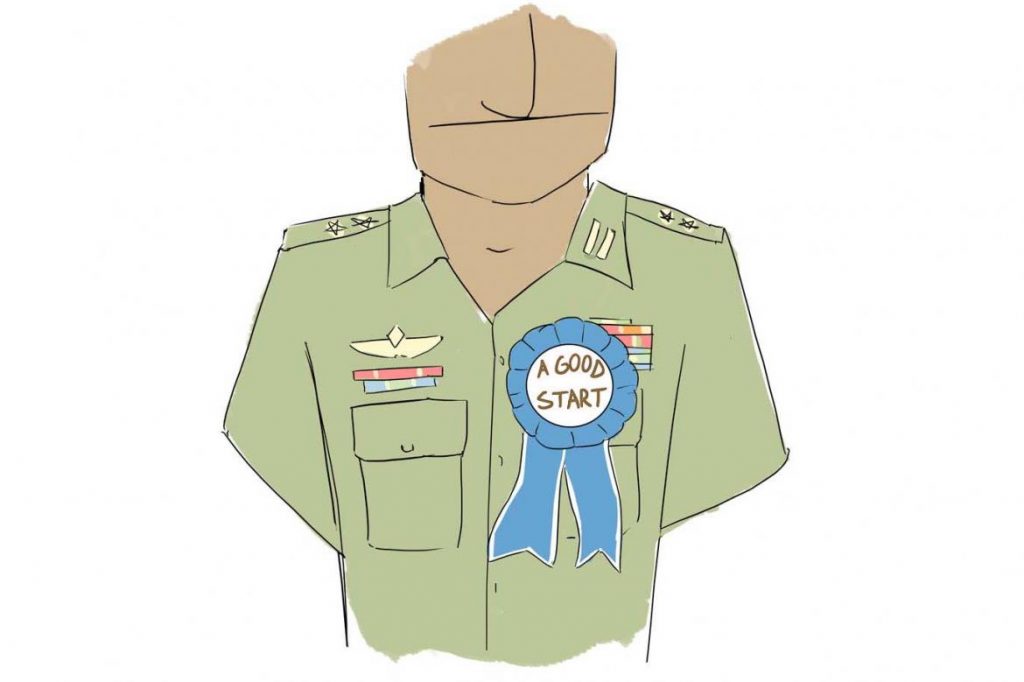It’s been more than nine months since Rakhine State plunged into an even darker chapter, when attacks by the Arakan Rohingya Salvation Army prompted a brutal army crackdown that has seen 700,000 people – overwhelmingly Muslims who identify as Rohingya – flee over the border into Bangladesh.
BOTH THE “clearance operations” and the government’s handling of the situation have badly damaged Myanmar’s reputation in the international community. Any goodwill remaining from the 2015 general election and transition has well and truly disappeared.
A number of countries, including the United States and the United Kingdom, have described the military’s actions as “ethnic cleansing”, while some members from within the United Nations have called it a suspected “act of genocide”. The threat of renewed sanctions – although in a more targeted form than what Myanmar endured under military rule – remains real.
Amid these deteriorating relations, there are some indications that the Myanmar government is taking steps to address concerns about human rights and the repatriation process – and, potentially, strengthen its strained ties with the West.
At this point, it’s important to recognise that they are merely indications of a change in approach; there is little that is tangible or concrete. But any move that Myanmar takes which acknowledges the severity of the accusations levelled against its security forces should be encouraged. On a strategic level it’s better than the head in the sand, outright denial approach, which has backfired again and again. Frontier hopes that there’s also a degree of sincerity in its actions.
The decision to invite members of the UN Security Council in April surprised many, and should be regarded as positive, albeit with some caveats. State Counsellor Daw Aung San Suu Kyi described the visit as a “turning point” in relations, but this was probably a little premature given the restrictions that were placed on the delegation. Council members had only limited access to the affected area in northern Rakhine, and did not visit Kachin State, where thousands have been displaced amid renewed fighting in recent months.
Support more independent journalism like this. Sign up to be a Frontier member.
There have been other developments since then, however. This week, the government and two UN agencies signed a memorandum of understanding to ensure the “voluntary, safe, dignified and sustainable repatriation” of refugees from Bangladesh. Although the UN maintains that “conditions are not conducive for voluntary return”, Myanmar’s apparent willingness to involve the UN and build trust in the process is a positive step.
The government has also said it will form an independent commission of inquiry (their words, not ours) to investigate alleged human rights violations in northern Rakhine State “and related issues”. The commission will consist of three members, including an “international personality”, and assisted by national and international legal and technical experts.
Critics will naturally scoff at the formation of yet another Rakhine-related commission but, once again, any development that allows genuinely independent figures to investigate alleged human rights abuses – including by ARSA and Myanmar security forces – should be welcomed. For the government, this comes with risks; another investigation that lacks credibility will only inflame the situation.
On June 3, the Global New Light of Myanmar published an article on its front page saying that the government was working on a strategy towards closing internally displaced persons camps in the country. Encouraging again, but nothing more than a headline at this point.
As fighting continues to rage in large parts of the country, it is unreasonable to suggest the Myanmar will be without IDPs camps any time soon. But six years after the violence began in Rakhine State that left well over 100,000 displaced, a comprehensive strategy towards closing those camps is long overdue. To be successful, such a strategy must be conducted in consultation with all communities in Rakhine.
There are still many reasons to be critical about the government’s strategy to dealing with the Rakhine State issue. Humanitarian groups, and the media, remain largely cut off from entering northern Rakhine – under the auspices of security – and some international figures deemed critical have been barred from entering the country, including the UN special rapporteur on human rights in Myanmar, Ms Yanghee Lee.
But positive steps are needed and should be encouraged. As has been well documented in these pages and elsewhere, progress on almost all of the issues in Rakhine State will not come easily. Working closely with international and domestic partners, it must devise meaningful strategies that follow the recommendations put forward by the Advisory Commission on Rakhine State.
After months, if not years, of denial, Myanmar needs to start somewhere. We hope that the past few months have indeed been a turning point.







